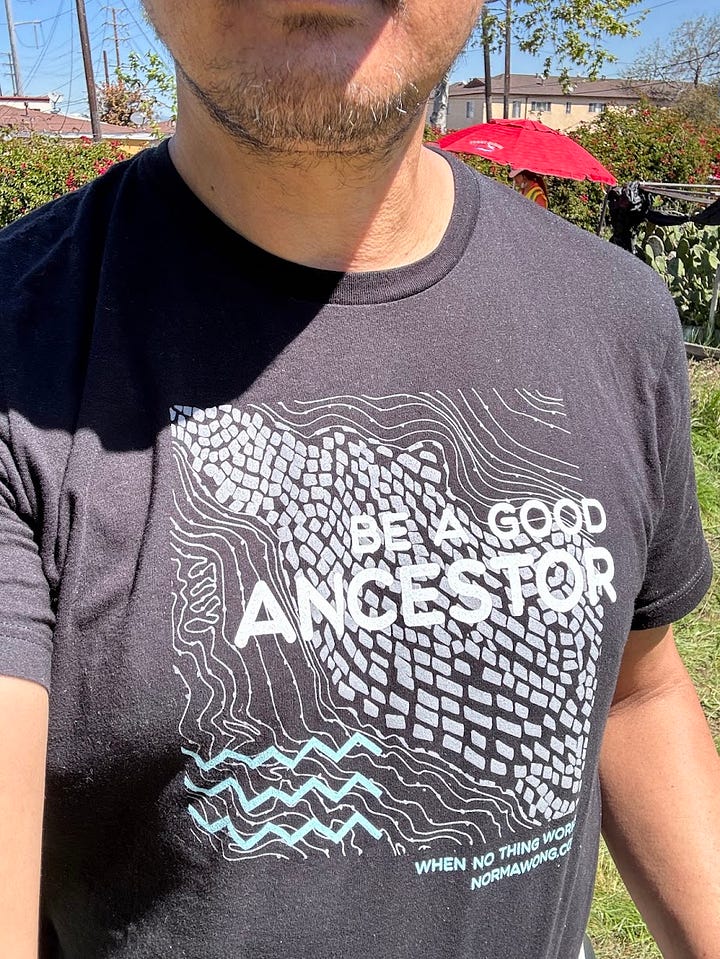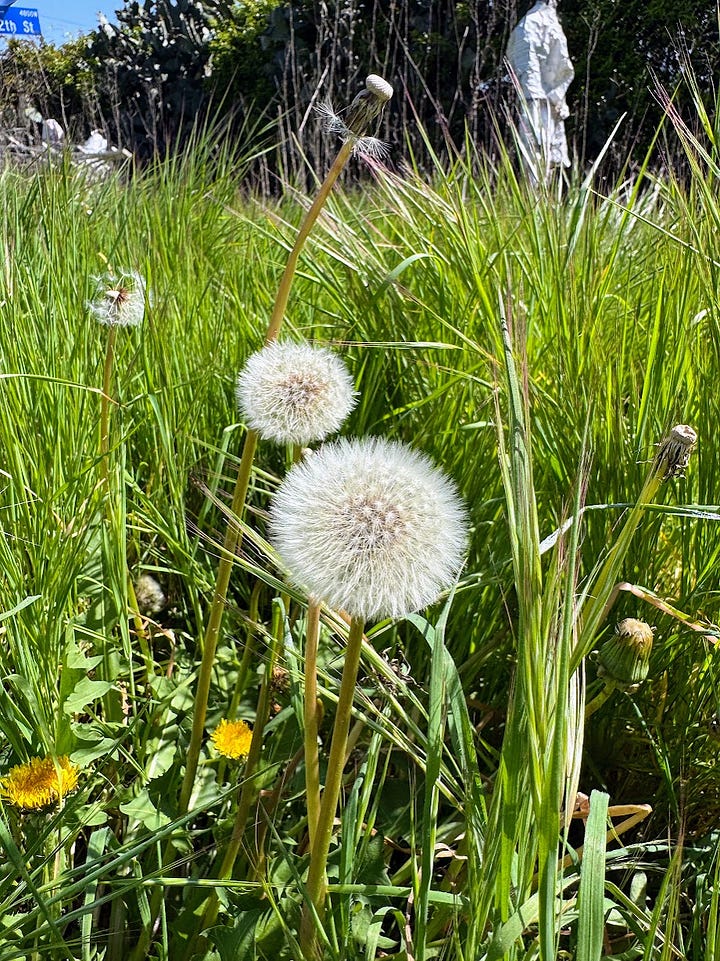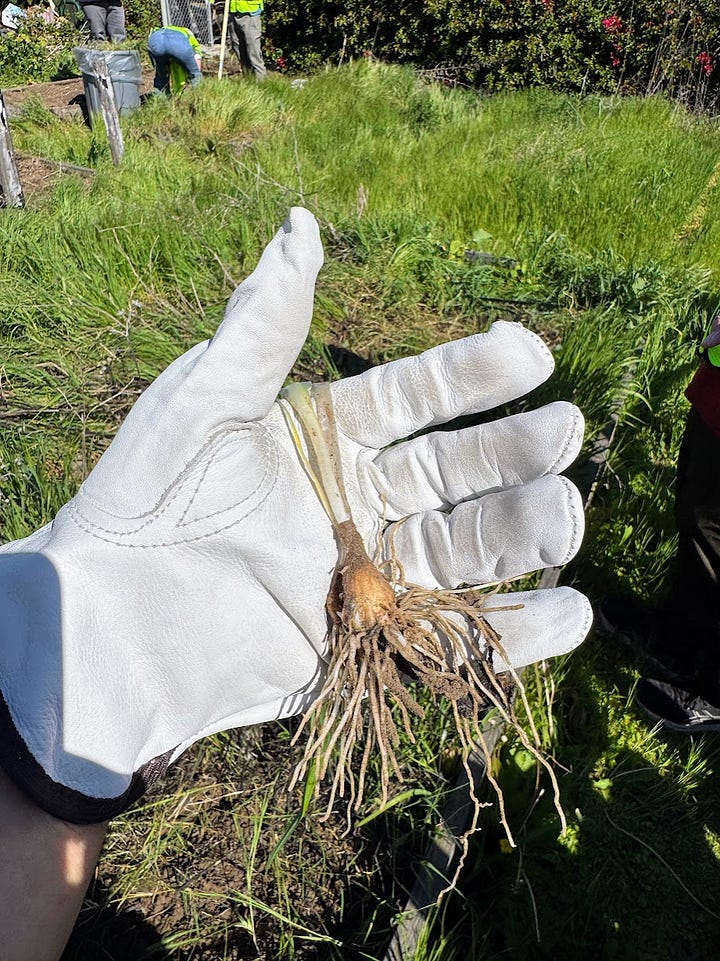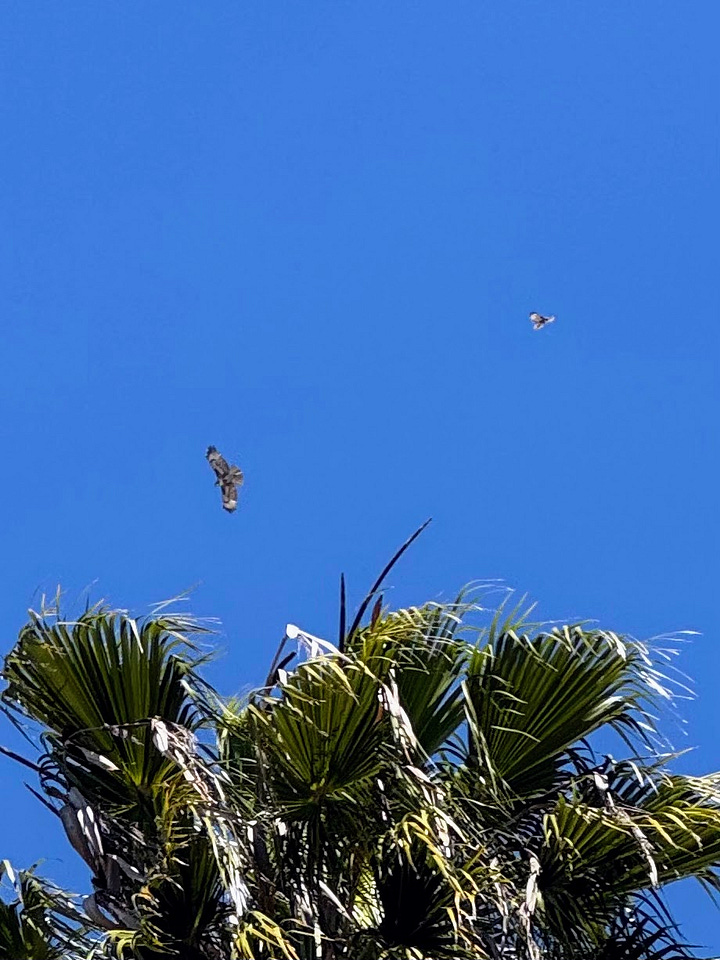Transcript of this audio post: I recently experienced one of the most challenging 48 hours of my professional career, but as difficult as it was, it led me to move in a different way than I might have before. Today, I had the chance to take a step back, not talk to lawyers, and just get back to business—focused on what matters most to me: community gardens.
I went down to Lennox, a small community wedged between two freeways and right under the flight path of LAX. There’s a little community garden there that had been shut down due to bureaucratic red tape. But today, it was time for a reopening party. More than 20 volunteers from various groups came together—Caltrans, the State Conservancy, the County Supervisor's Office, a nonprofit working with transitional workers, the Lennox Girl Scouts, gardeners from other communities, and, of course, local residents.
The garden was overrun with weeds—some growing more than two feet high—completely covering the garden beds. It was hard to tell where the paths ended and the beds began. But everyone grabbed gloves, shovels, and rakes, and got to work.
While clearing the first garden bed, a scent caught my attention: mint. In the second bed, I found spring onions, hidden under the tall grass. And in the third, there was the unmistakable smell of oregano. Beneath the weeds that had been there for over a year, nature’s bounty was still growing.
In that moment, I reflected on the power of resilience. It’s real, and it smells like the sweat of caring.
After dumping several bags of weeds in the truck, I had a chance to chat with one of the staff members at the State Conservancy. He was instrumental in bringing everyone together, and we talked about capacity-building and training for garden managers. He got excited about new funding for these programs, and then he said, “Omar, turn around. The ancestors are smiling down on us.”
There, high above the palm trees, were two hawks circling, coming closer. In his culture, the red-tailed hawk represents the ancestors. We took that as a blessing, feeling the presence of those who came before us.
Later, as I shared the story with another volunteer, he pointed at my T-shirt and said, “Look at your shirt.” It read, “Be a good ancestor.”
That moment struck me. Why do we show up for this work? What keeps us going? Community gardens are a powerful way of sharing land, and sharing land is one of the hardest things for people to do.
I shared this story with our lawyer, who then said, “Omar, there’s a hawk flying above me right now.” It was one of those synchronistic moments that make you stop and reflect.
As I go through life and this work, I’ve realized it’s not about asking why people mess up, but about asking why we get back up. And for me, the answer is simple: it’s the sweat of caring.
It’s the hard work of showing up—not taking things for granted, but giving and being a good ancestor.
Thanks for taking a listen.











Share this post